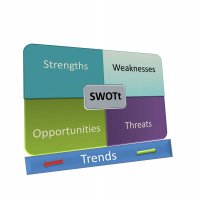Automation of work processes (whether through AI and machine learning and/or through physical robots) will replace many lower skilled workers but the jobs created will more than offset these. The key caveat is that these jobs will require the workers to excel at teamwork, adaptability and complex problem solving. The latter certainly involves some cognitive and quantitative problem solving but all three involve a heavy dose of social/interpersonal and personal effectiveness goals since so much of the problem solving will involve not just data from machines but input from people - customers, managers, colleagues, suppliers… These conclusions are based on studies sponsored by the World Bank and another by Mckinsey & Company, both in the last quarter of 2018.
Having a baseline understanding of the behavioral tendencies and the suitability of candidates and employees will increase in importance as time passes based on these issues. Understanding individual behavioral tendencies and promoting the development self-awareness of the issues underlying emotional intelligence and behavioral tendencies is already a proven strategy with demonstrable benefits- these benefits can be expected to increase measurably over the coming years.




















 One of the most difficult challenges managers face is choosing the right people and understanding how to get them to perform at their best. During the last 12 years of our experience, we have found no other tool except the Harrison Assessment that enables this kind of capability with incredible accuracy and insight.
One of the most difficult challenges managers face is choosing the right people and understanding how to get them to perform at their best. During the last 12 years of our experience, we have found no other tool except the Harrison Assessment that enables this kind of capability with incredible accuracy and insight.















